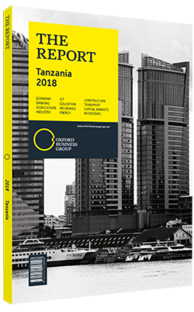Stergomena Lawrence Tax, Executive Secretary, Southern African Development Community (SADC): Interview

Interview: Stergomena Lawrence Tax, Executive Secretary, Southern African Development Community (SADC)
How has the SADC Industrialisation Strategy and Roadmap impacted industrialisation?
STERGOMENA LAWRENCE TAX: The SADC Industrialisation Strategy and Roadmap 2015-63 was approved in April 2015. To operationalise the strategy, a detailed action plan was prepared and approved in March 2017. Studies to profile the priority agricultural, mineral and pharmaceutical sectors and identify potential value chains for value addition and beneficiation have been conducted. Both studies indicated greater potential for domestic, regional and global value chains, and a high potential for the manufacturing of medicines and health commodities, specifically for HIV/AIDS, tuberculosis and malaria.
The next steps include detailed feasibility studies on each identified value chain, development of strategies for exploiting value chains, as well as attracting investment. Carrying out the action plan is expected to spur the industrialisation process at both national and regional levels. It may be premature to assess the impact and extent to which member states have made use of the strategy. It is, however, important to note that member states are committed to the implementation of the strategy in pursuit of the needed technological and socio-economic transformation.
What are the biggest challenges facing the implementation of the Tripartite Free Trade Area (TFTA)?
TAX: A cornerstone of any free trade area lies in the commitment of members to liberalise trade by eliminating internal tariff and non-tariff barriers. While there has been significant progress, and the agreement for the TFTA has been signed by 19 out of the 26 members, progress remains slow. For the TFTA to be operational, member states must finalise negotiations on exchange offers, tariff schedules and elimination of tariff barriers, and the agreement must be ratified by two-thirds of the member states. The process to negotiate and finalise tariff schedules among member states has been particularly slow. This is a significant challenge as the outstanding tariff schedules also cover trade with the tripartite’s biggest trading partners.
The deadline to conclude the negotiations is set for October 31, 2017. Recognising the slow progress and the need to operationalise the TFTA, the Tripartite Task Force – namely the EAC, COMESA and SADC secretariats – will draw up a programme of engagement with all tripartite member states as well as member states that have not made tariff offers.
What are the obstacles member states face in pursuing the Sustainable Development Goals (SDGs)?
TAX: There are a number of obstacles member states face in pursuit of the SDGs. One of the biggest ones is financing, especially given the slump in commodity prices in the global market. Most SADC member states are producers of primary commodities; be it agriculture, mining or oil products. Second, the SDGs are complex and integrated, implying the need to manage tradeoffs and synergies across targets, while ensuring that the SDGs are effectively mainstreamed into national development plans and proper synergies achieved. This calls for the development of relevant capacities, which many member states do not have at the moment.
Third, with many targets and indicators needed to achieve the SDGs, relevant statistics and data are unavailable in most member states, leading to a lot of gaps in reporting. Less than 40% of the 230 SDG indicators have full data. But even available data needs to be timely and disaggregated if meaningful evaluation and impact is to be deduced, which is also related to the issue of limited capacities in statistical and data gathering and analyses among member states.
Lastly, the Addis Ababa Action Agenda called for investment in infrastructure in key areas for achieving sustainable development, such as water, energy, roads and railways. However, there are glaring infrastructure gaps among the member states, which negatively affects sustainable economic growth and development.
You have reached the limit of premium articles you can view for free.
Choose from the options below to purchase print or digital editions of our Reports. You can also purchase a website subscription giving you unlimited access to all of our Reports online for 12 months.
If you have already purchased this Report or have a website subscription, please login to continue.

